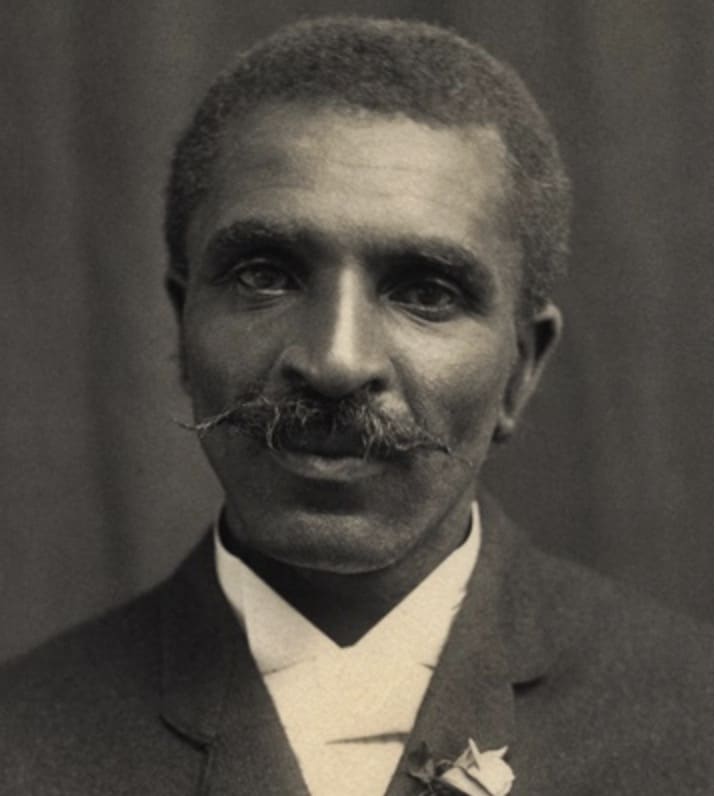
George Washington Carver was born into slavery near Diamond, Missouri around 1864. His exact birth date is unknown, though some accounts suggest January 10, and others suggest July 14. George’s father had died in an accident before George was born and when George was still an infant, he and his mother were kidnapped by slave raiders. Although George was returned to the farm, his mother’s fate was unknown.
Since young George wasn’t strong enough for labor in the plantation, he was assigned to domestic chores and gardening. This stimulated his interest in plants, and the farm workers later nicknamed him “the plant doctor.” At age 12, he attended a one-room schoolhouse in rural Missouri where he learned to read and write. After graduating from a high school in Kansas, George enrolled at Iowa State Agricultural College, becoming the first black student there. In 1894, he earned his Bachelor of Science degree and in 1896, was awarded his Master of Science in bacterial botany and agriculture. Dr. Carver became the first black faculty member of Iowa College.
Later in 1896, George Washington Carver joined the Tuskegee Institute (now Tuskegee University) in Alabama, where he conducted most of his influential work. He advocated for crop diversification and soil conservation to address the depletion of nutrients in the soil due to extensive cotton farming. Such soil depletion had been the cause of the Irish potato famine between 1845 and 1852.
Carver’s research led to the promotion of alternative crops that could restore nutrients and provide economic opportunities for farmers, especially in the South. His extensive experiments and discoveries showcased numerous uses for peanuts, such as creating peanut-based products like peanut butter, oil, flour, and cosmetics. He also found innovative uses for sweet potatoes, soybeans, and other crops.
Despite facing significant challenges and racial discrimination, Carver became known for his inspired work in agriculture. He was a dedicated educator who traveled extensively to teach farming techniques and agricultural practices. His work significantly impacted American agriculture, emphasizing the importance of sustainable farming methods.
Throughout his life, Carver received numerous honors and awards for his contributions to science and agriculture. His legacy extends beyond his scientific achievements, as he became a symbol of perseverance, innovation, and excellence in the face of adversity. George Washington Carver passed away on January 5, 1943, having made a significant contribution to agriculture and biology.
